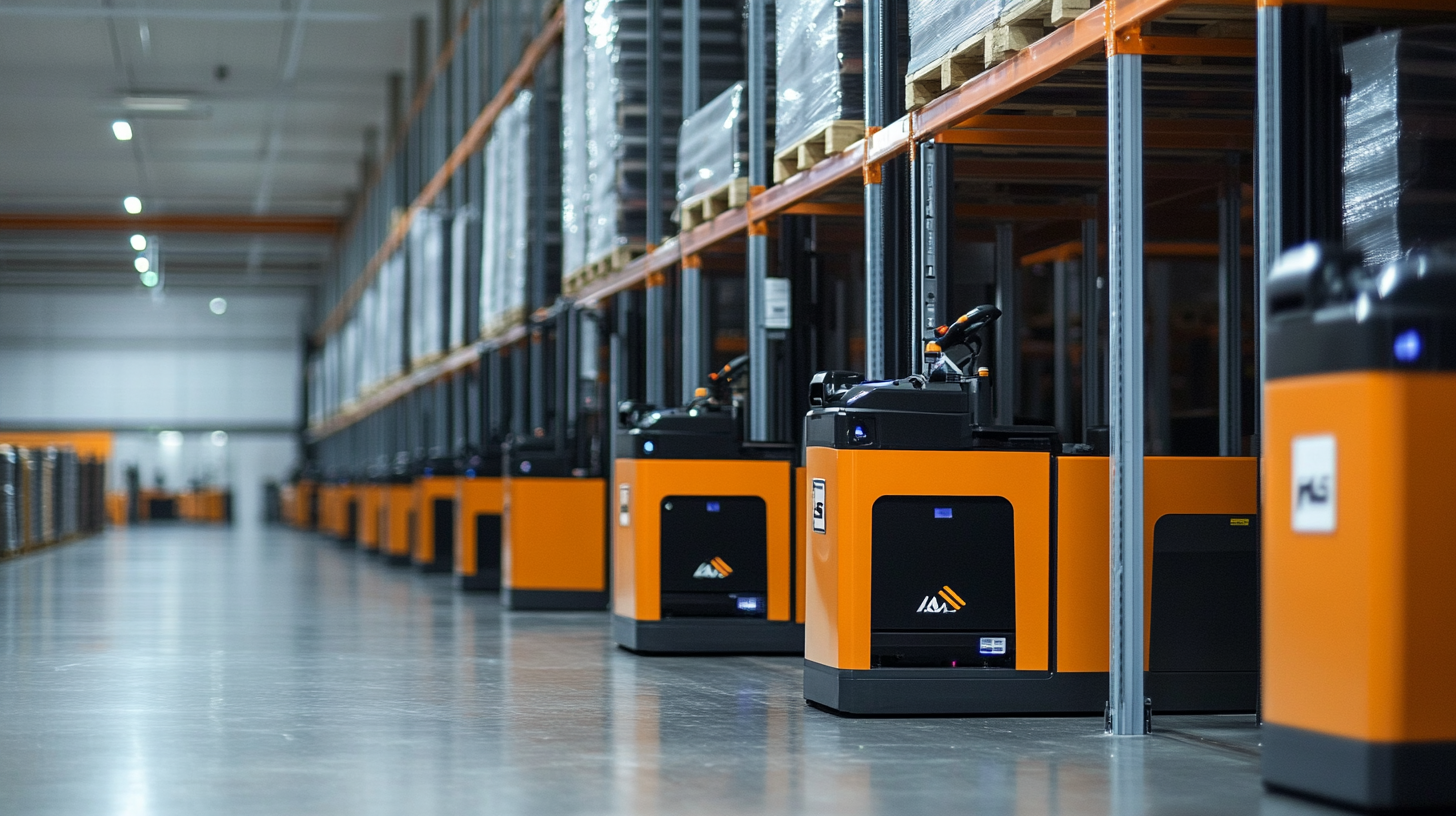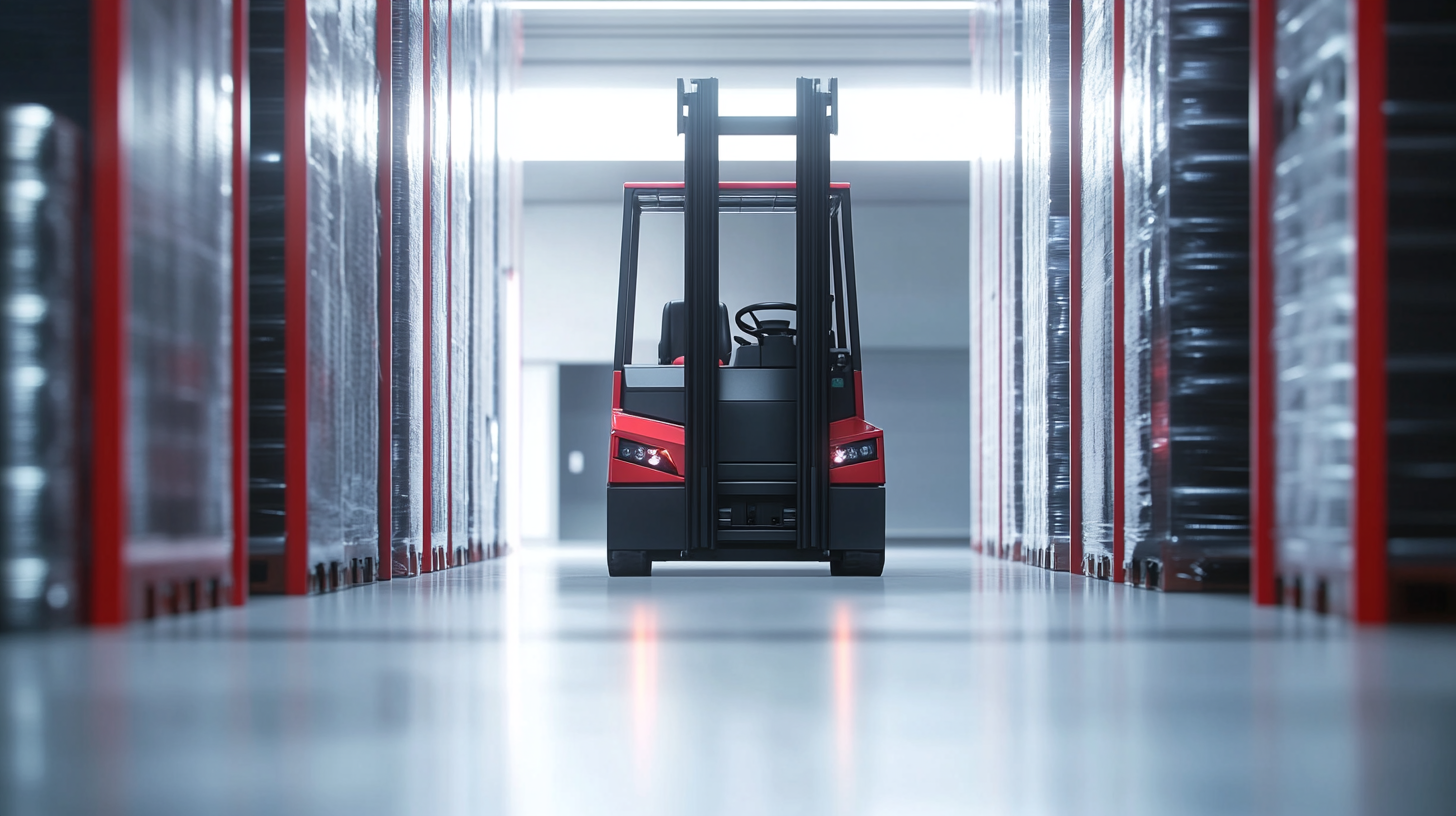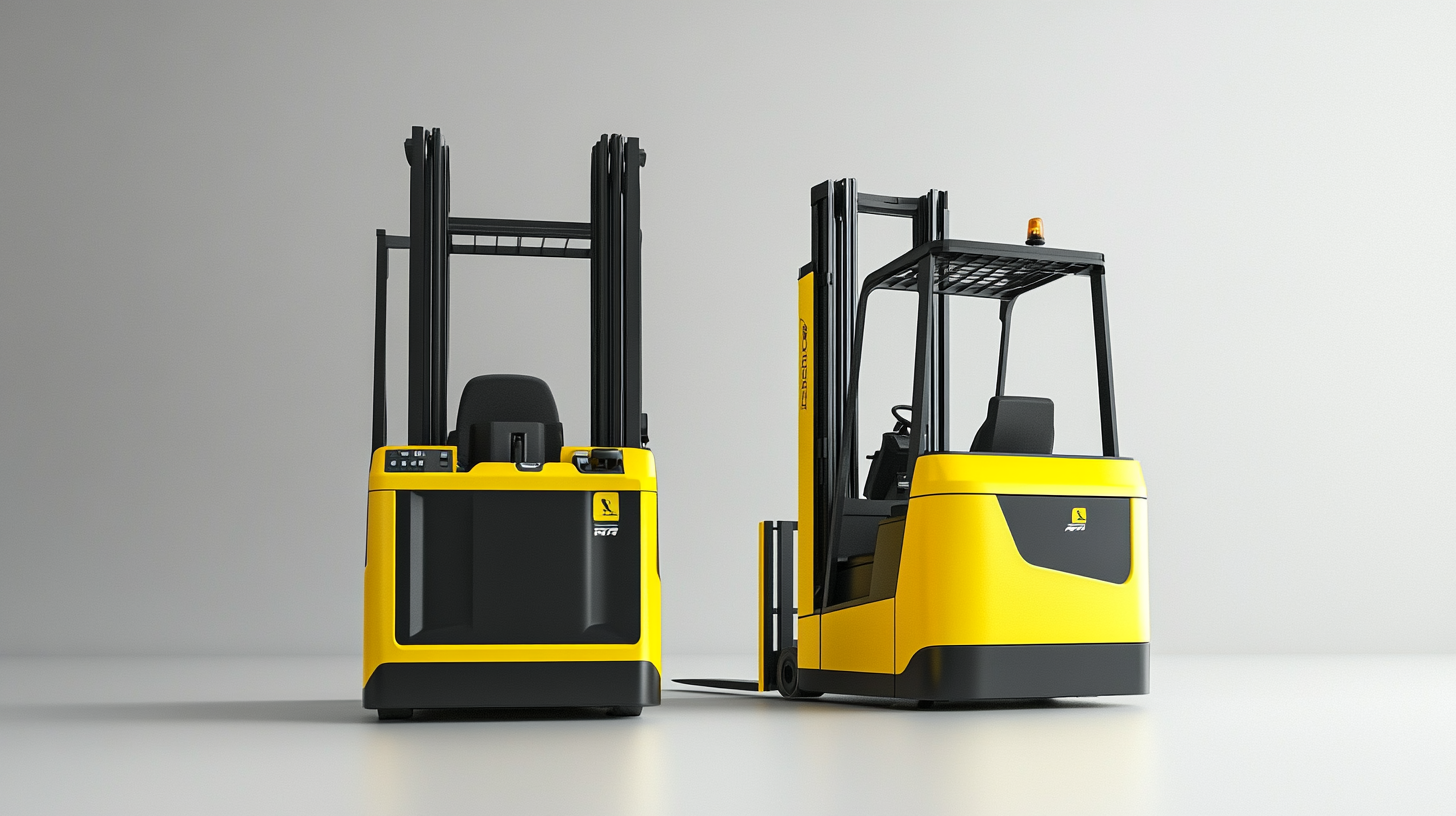Advantages of Choosing Battery Powered Forklifts in Modern Warehousing
As the logistics and warehousing industries evolve, the use of technology and automation becomes increasingly essential in enhancing efficiency and reducing operational costs. One innovation that stands out is the adoption of Battery Powered Forklifts, which have gained significant traction due to their environmental benefits and operational efficiency. According to a report by the Material Handling Institute, battery-powered equipment is projected to account for over 25% of all industrial vehicle sales by 2025. This shift is primarily driven by the growing emphasis on sustainability and the need for more versatile, eco-friendly material handling solutions.
The advantages of Battery Powered Forklifts extend beyond environmental considerations; they also offer compelling operational benefits that directly impact productivity. A study from the Industrial Truck Association indicated that battery forklifts can operate up to 30% more efficiently than their propane or diesel counterparts, especially in indoor settings where emissions are a concern. Furthermore, advancements in battery technology are leading to longer run times and reduced charging periods, making these forklifts an ideal choice for modern warehousing operations. As businesses continue to look for innovative ways to streamline processes and adhere to stricter environmental regulations, the demand for Battery Powered Forklifts is expected to rise sharply.

Benefits of Increased Efficiency with Battery Powered Forklifts
In the ever-evolving landscape of modern warehousing, the push for efficiency has never been more pronounced. One of the standout solutions in this realm is the adoption of battery-powered forklifts. These machines not only enhance productivity but also contribute to a smoother operational flow, making them a smart choice for many businesses. One of the most significant advantages of battery-powered forklifts is their ability to operate without the emissions associated with traditional gas-powered vehicles. This results in a healthier work environment, which is particularly beneficial in enclosed spaces where air quality is crucial. Moreover, the quiet operation of electric forklifts reduces noise pollution, allowing for improved focus among warehouse staff and a more pleasant working atmosphere. Battery-powered forklifts also boast impressive energy efficiency. With advancements in battery technology, these forklifts can operate for extended periods on a single charge, minimizing downtime and maximizing productivity. Fast charging options further enhance this efficiency, allowing businesses to keep their operations running smoothly. Furthermore, the lower maintenance requirements of electric forklifts translate to reduced operational costs over time, making them a financially sound choice in the long run. In summary, choosing battery-powered forklifts is a strategic move for those looking to boost efficiency in modern warehousing. Their benefits extend beyond mere productivity, contributing to a safer, quieter, and more cost-effective working environment.

Environmental Impact: Why Battery Forklifts Are a Greener Choice
As businesses increasingly prioritize sustainability in their operations, battery-powered forklifts are emerging as a favored choice in modern warehousing. One of the most compelling reasons to adopt these electric alternatives lies in their lower environmental impact compared to traditional internal combustion engines. According to a study by the Energy Efficiency and Renewable Energy (EERE) program, electric forklifts can reduce greenhouse gas emissions by up to 60% over their lifetime when compared to gasoline or diesel-powered counterparts. This significant reduction is crucial as many companies aim to meet regulatory requirements and corporate sustainability goals.
Beyond emissions, battery-powered forklifts also enhance air quality within warehouses. The Occupational Safety and Health Administration (OSHA) estimates that over 80% of occupational respiratory issues stem from poor air quality due to fossil fuel emissions. By transitioning to electric forklifts, warehouses can significantly decrease harmful pollutants, safeguarding employee health while contributing to a cleaner environment. Additionally, advancements in battery technology, such as lithium-ion batteries, not only offer improved energy efficiency but also extend operational runtimes and reduce downtime on charging.
The lifecycle benefits of battery-powered forklifts extend to energy consumption as well. According to the National Institute of Standards and Technology (NIST), electric forklifts typically consume less energy than their gasoline or diesel counterparts, translating into lower operational costs for businesses. With modern warehousing trends leaning towards energy efficiency, the choice of battery-powered forklifts becomes increasingly appealing, aligning environmental stewardship with economic performance, ultimately fostering a sustainable competitive advantage in the industry.

Cost Savings: Lower Operating Expenses with Electric Forklifts
In today's fast-paced logistics environment, companies are increasingly looking for ways to reduce operating expenses while maintaining efficiency. One effective solution is the adoption of battery-powered forklifts. These electric vehicles bring significant cost savings compared to their internal combustion counterparts, making them an attractive choice for modern warehousing.
One of the most prominent advantages of electric forklifts is their lower energy costs. Unlike traditional gas-powered forklifts that require gasoline or diesel, battery-powered units rely on electric charging, which is generally more economical. Furthermore, the maintenance costs associated with electric forklifts are significantly lower. They have fewer moving parts and do not require regular oil changes or fuel filters, reducing both routine maintenance and long-term repair costs.
Additionally, battery-powered forklifts contribute to a more sustainable and environmentally friendly working environment. Without the emissions produced by gas-powered alternatives, businesses can create a healthier workspace for their employees and comply with stricter environmental regulations. This shift not only highlights a commitment to sustainability but also translates into potential savings in the form of tax incentives and grants for green initiatives.
Overall, the switch to battery-powered forklifts not only optimizes operational costs but also positions companies as leaders in sustainability, further enhancing their brand image in a competitive marketplace.

Safety Features: Enhanced Worker Safety in Battery Operated Models
The evolution of warehousing technology has led to the increasing popularity of battery-powered forklifts, significantly enhancing safety features that benefit both workers and operations. According to a report by the Occupational Safety and Health Administration (OSHA), material handling incidents account for nearly 25% of all workplace injuries in the United States. By opting for battery-operated models, companies can dramatically reduce these risks, as they typically emit less noise and vibrations, enhancing the overall environment for warehouse employees.
Battery-powered forklifts are equipped with advanced safety features such as regenerative braking systems and automatic shut-off controls. These innovations not only help to minimize accidents but also provide operators with enhanced control during operations. Data from the Industrial Truck Association indicates that facilities using electric forklifts reported a 40% decrease in the number of accidents compared to those using internal combustion models. This underscores the critical role of battery-powered equipment in promoting safer working conditions.
Moreover, battery-powered forklifts are often fitted with modern safety technology, such as collision warning systems and enhanced visibility features. A study conducted by the National Institute for Occupational Safety and Health (NIOSH) found that these safety enhancements could reduce the likelihood of tip-over incidents, which are among the deadliest accidents in warehousing environments. By implementing battery-operated forklifts, companies not only adhere to industry safety standards but also foster a culture of safety, ultimately leading to higher employee morale and productivity.
Maintenance Benefits: Reduced Downtime and Lower Maintenance Needs
When it comes to modern warehousing solutions, battery-powered forklifts are becoming increasingly popular, especially for their maintenance benefits. One of the significant advantages of these forklifts is the reduced downtime they offer. Traditional internal combustion forklifts require regular maintenance that can take equipment offline for several hours or even days. Conversely, battery-powered forklifts generally need less frequent servicing. Their electric motors are less complex than those of their gas counterparts, leading to fewer mechanical failures and faster turnaround on repairs.
Moreover, the lower maintenance needs of battery-powered forklifts contribute to long-term cost savings for businesses. With fewer parts to maintain or replace, warehouses can reduce their maintenance budgets significantly. Battery maintenance is also straightforward, usually involving regular charging and occasional checks on battery fluid levels, which is substantially less demanding than dealing with oil changes and exhaust systems in fossil fuel-powered models. This simplicity not only saves time for warehouse staff but also allows them to focus on operational efficiency rather than equipment upkeep.
In addition, the longevity of batteries has improved significantly, enhancing the overall sustainability of warehouse operations. A robust battery can last for an entire shift or longer, allowing for smoother operations without the frequent interruptions associated with fuel refills or extensive maintenance checks. As businesses continue to seek innovations that promote efficiency, the maintenance benefits of battery-powered forklifts make them a smart choice for any modern warehousing environment.



